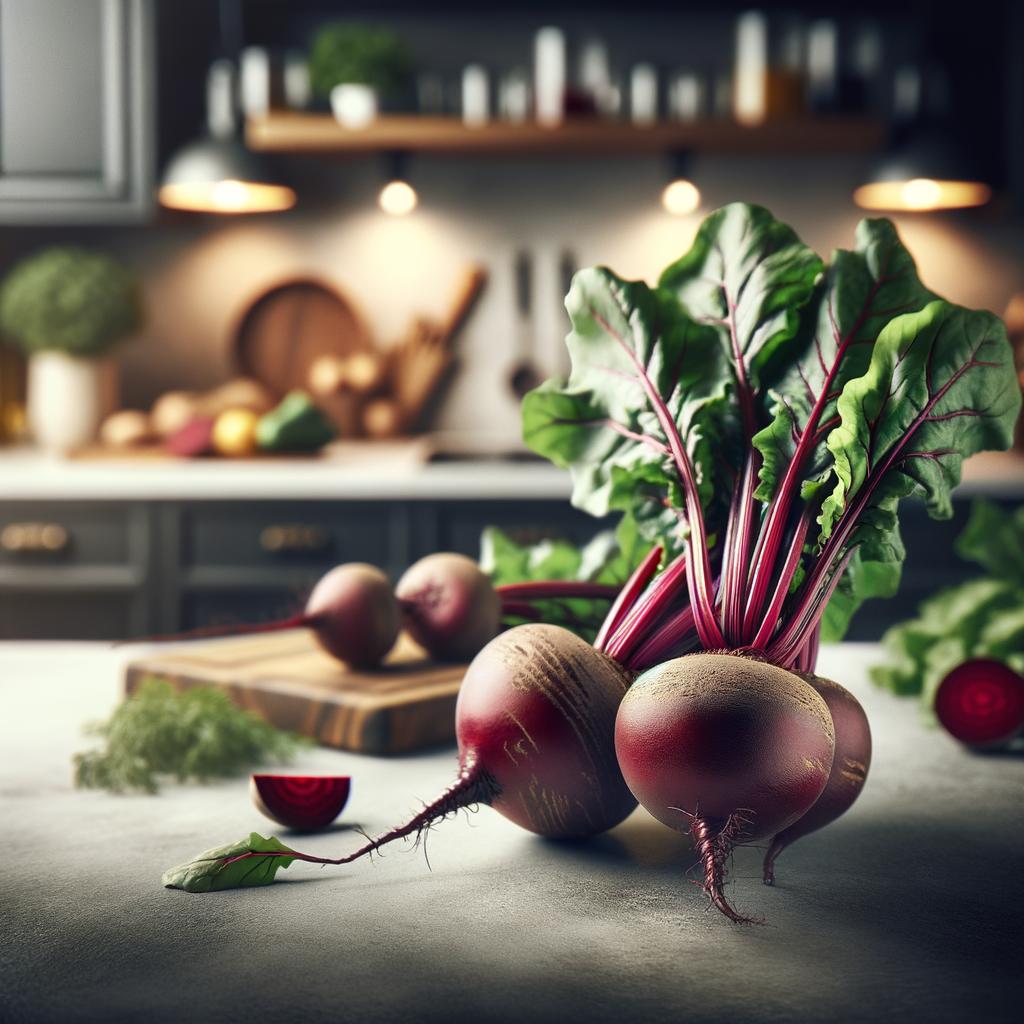Beetroots

Description
Our star ingredient today is the vibrant and earthy beetroot. Often overlooked, this root vegetable is a spectacle of nature’s artistry. It boasts a rich, deep crimson hue that can transform any dish into a visual masterpiece. The beetroot's texture is firm and crisp when raw, but once cooked, it becomes tender and buttery. Its flavor profile is uniquely sweet, yet earthy with a subtle hint of bitterness that adds complexity. One of the unique characteristics of beetroot is its natural staining property, which can turn everything it touches into a beautiful shade of ruby red.
Primary Uses
Beetroot is a versatile ingredient that can be used in a myriad of ways in the kitchen. It is commonly roasted, boiled, or pickled and used in salads, soups, and side dishes. In Eastern European cuisine, it is a key component in borscht, a hearty soup that warms the soul. In Australia, a slice of pickled beetroot is a standard topping for a burger. Beetroot's natural sweetness also makes it a surprising yet delightful addition to baked goods like cakes and brownies. Beyond the culinary world, beetroot juice is a popular natural dye, and its leaves have been used traditionally for medicinal purposes due to their high nutrient content.
History
The history of beetroot is as rich as its color. Its origins trace back to the ancient Mediterranean region, where only the leaves were eaten. The Romans were the first to cultivate it for its roots and used it as a treatment for fever and wounds. Beetroot also held a romantic allure in Greek mythology. It was said to be a favorite of Aphrodite, the goddess of love, and was believed to enhance beauty and attractiveness. Over time, its use and popularity evolved, and today, it is celebrated globally for its culinary versatility and health benefits.
Nutritional Information
Beetroot is a nutritional powerhouse packed with essential vitamins and minerals. It is rich in vitamin C, fiber, and essential minerals like potassium and manganese. It also contains betalains, a class of antioxidants known for their anti-inflammatory and detoxifying properties. Regular consumption of beetroot can support heart health and improve stamina. Compared to other root vegetables, beetroot has a higher sugar content, but its high fiber content helps regulate blood sugar levels. It's a testament to nature's balance - a perfect blend of sweet and nutritious.
In the grand tapestry of food history, beetroot stands out as a humble vegetable with a romantic past and a promising future. Its natural beauty, versatility, and nutritional benefits make it a worthy addition to any meal.

